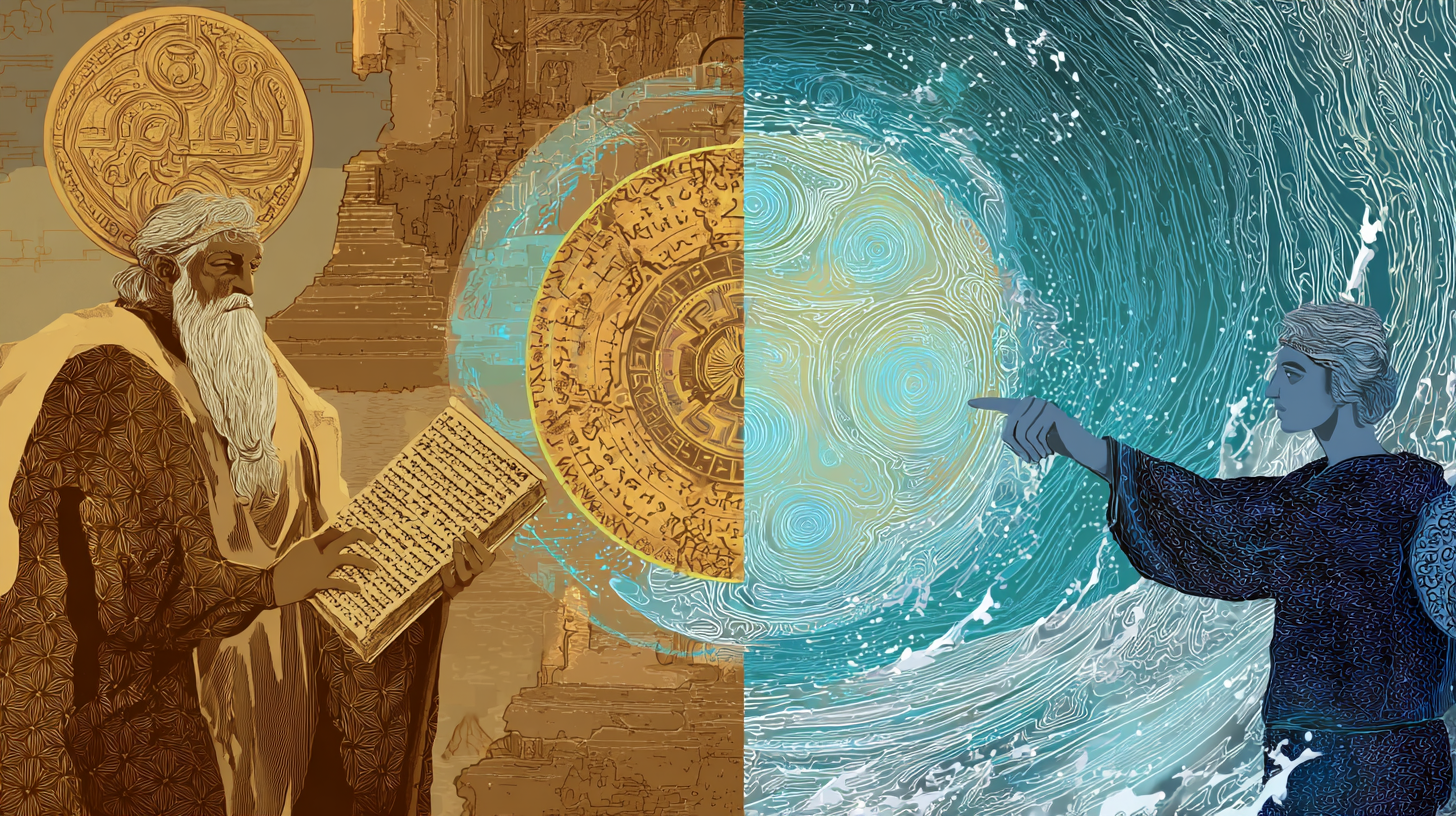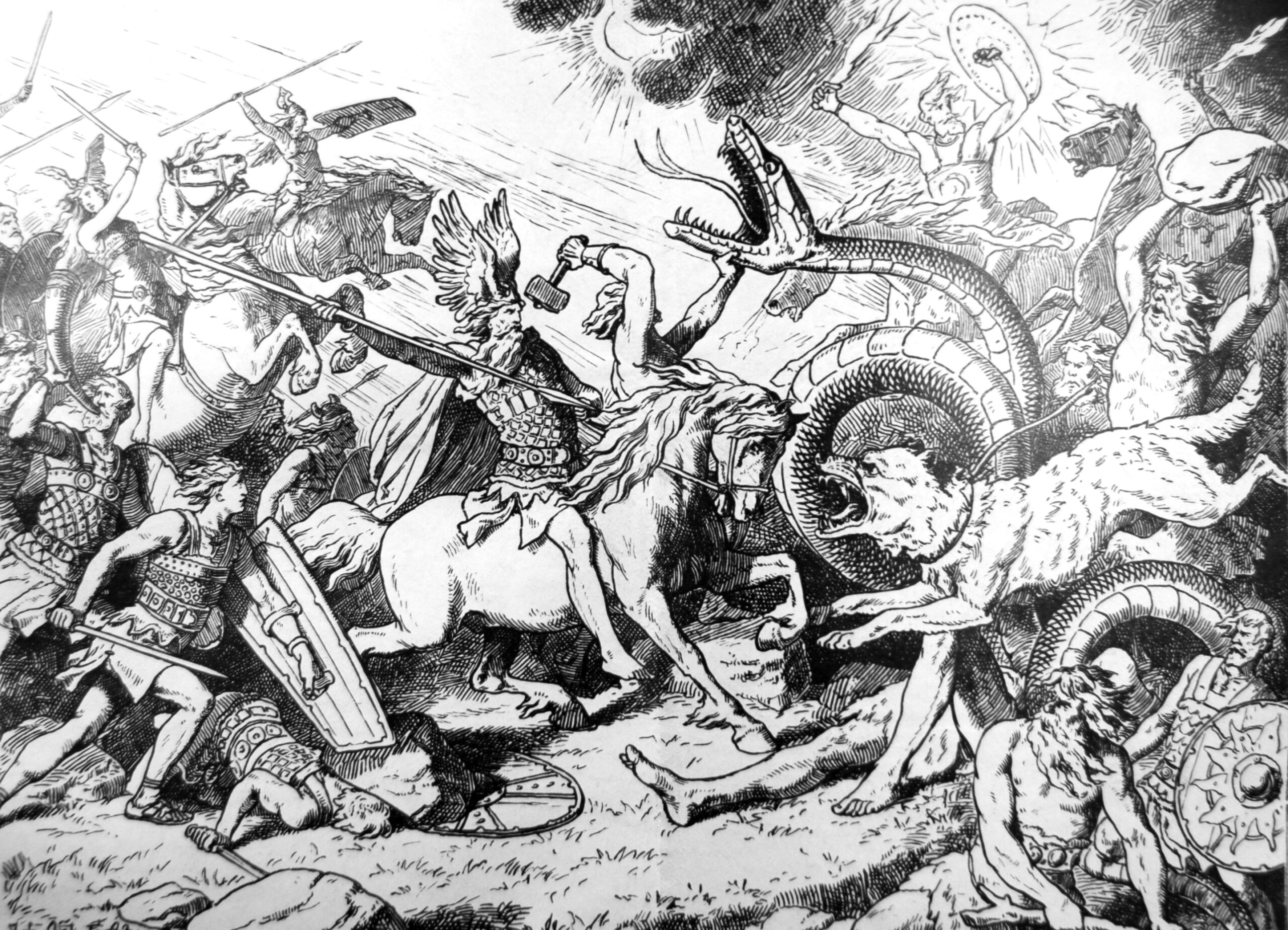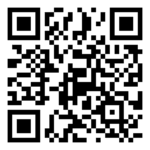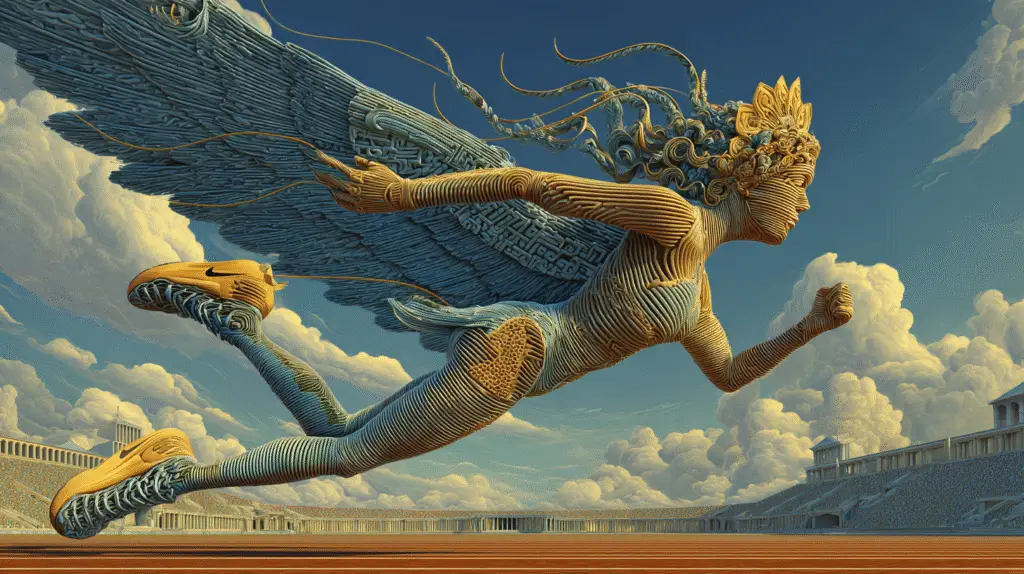
Why Our "Disenchanted" World Still Dances with Gods
In our information-rich era, skepticism is often lauded. We demand data, verifiable facts, and logical explanations. Anything that smacks of “myth” is quickly dismissed as unscientific, a quaint remnant of a less enlightened age. We’ve replaced gods with algorithms, prophecies with prognoses, and ancient rituals with meticulously planned routines.
Yet, for all our technological advancement and scientific rigor, human nature remains remarkably consistent. We still seek meaning, build narratives, and respond to certain fundamental patterns of experience. The idea that we have entirely outgrown mythology is, ironically, a modern myth in itself. The truth is, these stories didn’t vanish; they simply went undercover, adapting to the modern landscape.
The Mythological Echo: Gods in Our Everyday Language, Time, and Brands
The ubiquity of myth in our daily lives often goes unnoticed because it’s so deeply ingrained. It’s not about literal belief, but about the enduring power of archetypes and narrative structures.
Language: Whispers of the Divine in Our Words
Our vocabulary is a living archive of ancient tales. When you feel a sudden, overwhelming dread, you might experience a moment of “panic,” a word derived from the Greek god Pan, whose sudden appearances in desolate places could inspire irrational fear. When you repeat something another has said, you “echo” the plight of the nymph Echo, cursed by Hera to only repeat the last words spoken to her. To “hypnotize” someone is to invoke Hypnos, the Greek god of sleep. And a trusted advisor is a “mentor,” named after Mentor, the wise old friend of Odysseus whose form the goddess Athena often took.
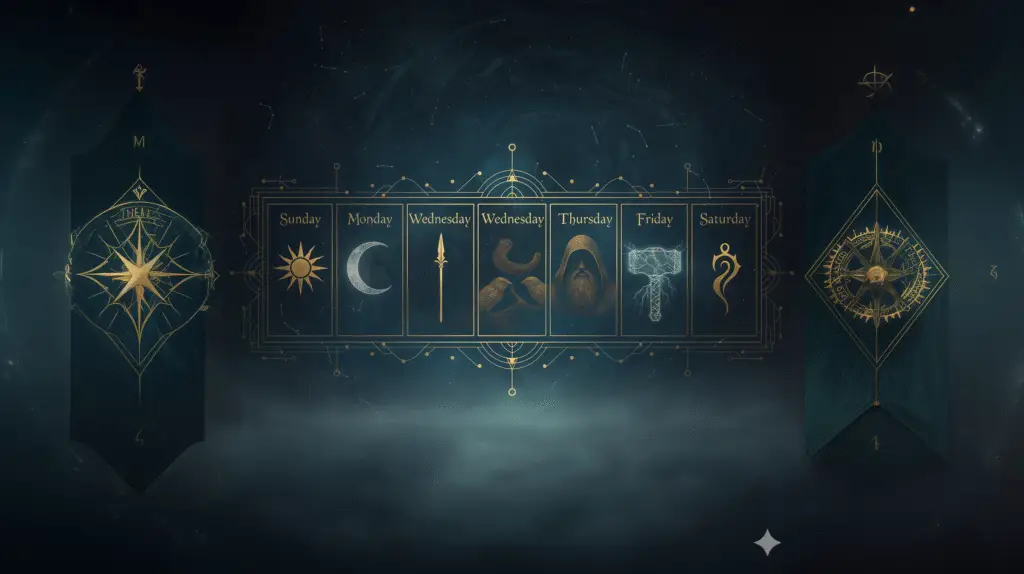
Time: A Calendar of Deities
Look at your calendar, and you’ll see a direct lineage to ancient gods. While Sunday and Monday honor the Sun and Moon, the rest of our weekdays bear the names of powerful Germanic and Norse deities, often equated with their Roman counterparts:
- Tuesday: Tyr’s day (Norse god of war, akin to Mars).
- Wednesday: Woden’s day (Norse god Odin, akin to Mercury).
- Thursday: Thor’s day (Norse god of thunder, akin to Jupiter).
- Friday: Frigg’s day (Norse goddess of love, marriage, and fertility, akin to Venus).
Each time we schedule an appointment or mark a holiday, we unconsciously pay homage to these ancient powers, structuring our lives along cosmological lines that are millennia old.
Branding: The Allure of Mythic Power
Commerce thrives on storytelling, and no stories are more potent than myths. Brands don’t just sell products; they sell aspirations rooted in archetypal narratives:
- Nike: Named after the Greek goddess of Victory, the brand instantly evokes triumph, speed, and aspiration.
- Hermès: The luxury brand channels the swift, elegant Greek messenger god, symbolizing communication, travel, and refined taste.
- Pandora: Whether it’s the jewelry or the music streaming service, the name evokes curiosity, opening a “box” of delights or even hidden desires.
- Starbucks: Their iconic twin-tailed siren logo is a direct nod to the alluring, yet dangerous, mythological creatures who tempted sailors. It’s a symbol of irresistible pull, comfort, and perhaps even a hint of addictive pleasure.
These brands tap into our subconscious understanding of these mythic figures, imbuing their products with a powerful, unspoken narrative.
Pop Culture: The Hero's Journey Lives On
From the epic sweep of Star Wars to the magical adventures of Harry Potter, from the trials of Frodo in The Lord of the Rings to Neo’s awakening in The Matrix, our most beloved stories follow an ancient blueprint: the Hero’s Journey. This universal monomyth, identified by Joseph Campbell, traces a character’s call to adventure, their descent into trials, their transformation, and their eventual return with a boon for their community.
This structure mirrors countless ancient epics like Homer’s The Odyssey, the Sumerian tale of Gilgamesh, or the quests of Perseus and Heracles. It persists because it reflects fundamental patterns of human experience – growth, challenge, sacrifice, and redemption – making these modern blockbusters resonate on a primal level.

Archetypes as the Mind's Operating System
These pervasive examples are not mere coincidences or clever marketing ploys. They point to something far deeper: myths provide us with an unconscious operating system for understanding the world. They offer archetypal patterns – universal symbols and themes – that our minds instinctively use to make sense of complex realities.
We continuously apply ancient frameworks to modern situations. The eternal struggle between Chaos and Order, for instance, plays out in political debates, economic fluctuations, and even our personal quest for stability amidst life’s unpredictability. We still navigate metaphorical labyrinths in bureaucratic systems or complex personal relationships, seeking the thread to guide us. And the concept of the scapegoat, where an individual or group is blamed for collective woes, is an ancient ritual that sadly continues to manifest in modern social and political discourse.
Myths, therefore, aren’t just stories; they are the lenses through which we interpret reality. They offer a pre-existing framework, a “software” running in the background, shaping our perceptions and reactions long before conscious thought kicks in. Recognizing these patterns empowers us, revealing the profound, enduring wisdom hidden within our culture.
Unravel the Threads of Myth with Saga
Re-enchanting the Everyday
Our journey through language, time, branding, and pop culture reveals a fascinating truth: myths are far from dead. They are the invisible “software” running in the background of our civilization, subtly guiding our perceptions, shaping our consumer choices, and structuring the narratives by which we live. We may believe we’re rational beings in a scientific age, but our minds are still deeply attuned to the echoes of gods, heroes, and cosmic battles.
By recognizing these hidden mythological influences, we can re-enchant our everyday lives. Suddenly, a walk through a shopping mall becomes a gallery of archetypes, a glance at the calendar a nod to forgotten gods, and a movie night a reunion with ancient heroes. Understanding this profound connection doesn’t diminish our modern world; it enriches it, revealing layers of meaning we might otherwise miss. What other hidden myths are secretly guiding your daily choices? How might understanding them empower you?
